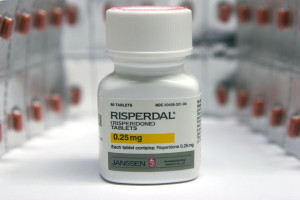Johnson & Johnson Wants Hundreds of Risperdal Lawsuits Thrown Out on Technicality
 Faced with 500 pending Risperdal lawsuits, attorneys for Johnson & Johnson are saying many of the cases should be thrown out because the plaintiffs waited too long to file them. The lawyers for Janssen Pharmaceuticals, a subsidiary of J&J, have filed a motion for a summary judgment asking Pennsylvania Judge Arnold A. New to issue an order paving the way for dismissal of hundreds of suits on the basis they were filed after the statute of limitations had expired.
Faced with 500 pending Risperdal lawsuits, attorneys for Johnson & Johnson are saying many of the cases should be thrown out because the plaintiffs waited too long to file them. The lawyers for Janssen Pharmaceuticals, a subsidiary of J&J, have filed a motion for a summary judgment asking Pennsylvania Judge Arnold A. New to issue an order paving the way for dismissal of hundreds of suits on the basis they were filed after the statute of limitations had expired.
The lawsuits, most of which have been filed in the Philadelphia Court of Pleas, revolve around the central claim that use of Risperdal, an antipsychotic drug used in the treatment of schizophrenia and bipolar disorders, caused the plaintiffs—boys and young men—to grow enlarged breasts, a condition known as gynecomastia. This resulted in severe emotional stress for the plaintiffs and in many cases, necessitated surgical removal of the enlarged breast tissue.
The plaintiffs argue that warnings from the manufacturer about Risperdal side effects were inadequate, and that if they knew of the psychological and physical damage, they would have avoided the use of the drug entirely.
In the motion, the attorneys for J&J ask Judge New to rule that all plaintiffs knew or should have discovered the connection between Risperdal and gynecomastia by October 31, 2006. Since many of the Risperdal lawsuits were filed in the last few years, the drug maker argues that the claims should be barred by the statute of limitations. One exception to the current statute is that teenage boys who have been diagnosed with gynecomastia can file Risperdal lawsuits up to 7 years after their 18th birthday.
Statutes of limitations can vary depending on the cause of action
Statutes of limitation are federal or state laws that restrict the time within which legal proceedings may be brought and are intended to encourage the resolution of legal claims within a reasonable amount of time. They are also designed to prevent fraudulent and stale claims from arising after evidence has been lost.
It is a defense that is ordinarily asserted by the defendant to defeat an action brought against him after the appropriate time has elapsed, as the pending Johnson & Johnson Risperdal lawsuits are being characterized. However, the statutes can be reduced or extended under certain circumstances depending on whether the cause of action involves a contract, personal injury, libel, fraud, or other claim.
Attorneys may want “discovery rule” applied
There are occasions when the Courts have had to reconsider the purpose of time limits in dealing with controversial issues, such as the recovered memory of child sexual abuse victims where memories of childhood trauma are so disturbing that the child represses them, sometimes for many years.
Courts that faced this issue for the first time sought ways to circumvent the time barrier. One method was to apply the “discovery rule”, which applies if the injury is one that is not readily perceptible as having an external source. Thus, a person who has serious mental health problems but does not know the cause, will be allowed to suspend the statute of limitations until he or she discovers that the injury was caused by the defendant’s conduct.
In the case of Risperdal, one of the side effects of the drug is weight gain. The attorneys may argue that it was impossible for a doctor to diagnose gynecomastia in the presence of pronounced weight gain.
Attorneys representing the boys and young men in the Risperdal lawsuits are expected to officially respond to the motion in early June.
- Wall Street Journal, Health Blog, Risperdal Can Have Troubling Side Effects in Boys, http://blogs.wsj.com/health/2008/11/25/risperdal-can-have-troubling-side-effects-in-boys/
- National Library of Medicine, National Institute of Health, Medline Plus, http://www.nlm.nih.gov/medlineplus/druginfo/meds/a694015.html


 Resources
Resources
 Resources
Resources
